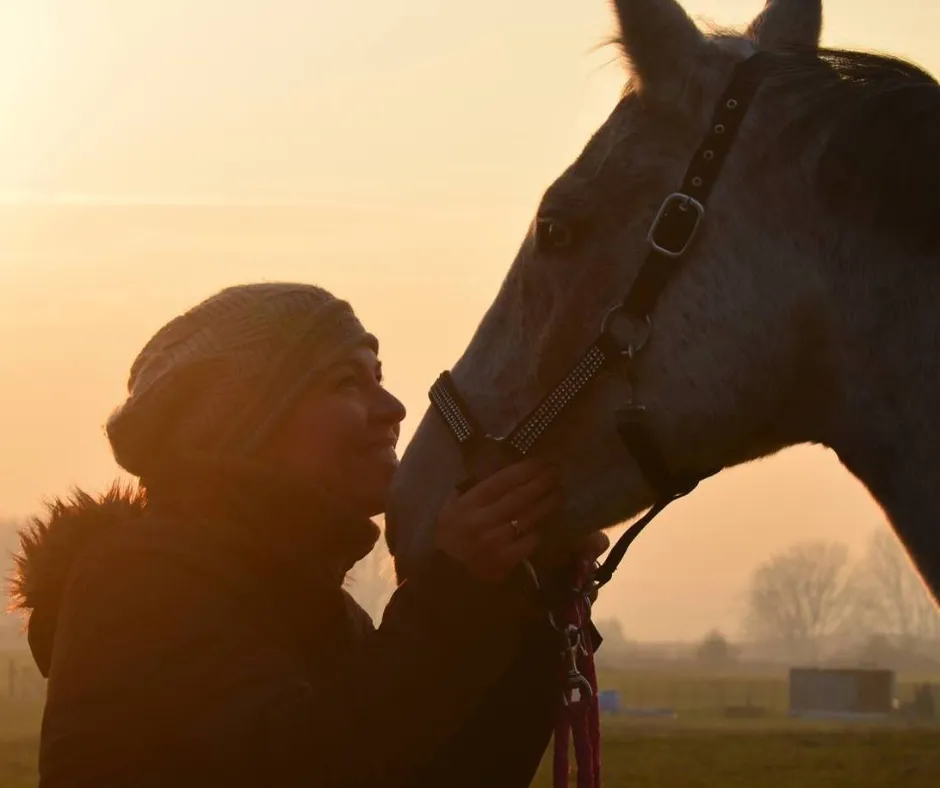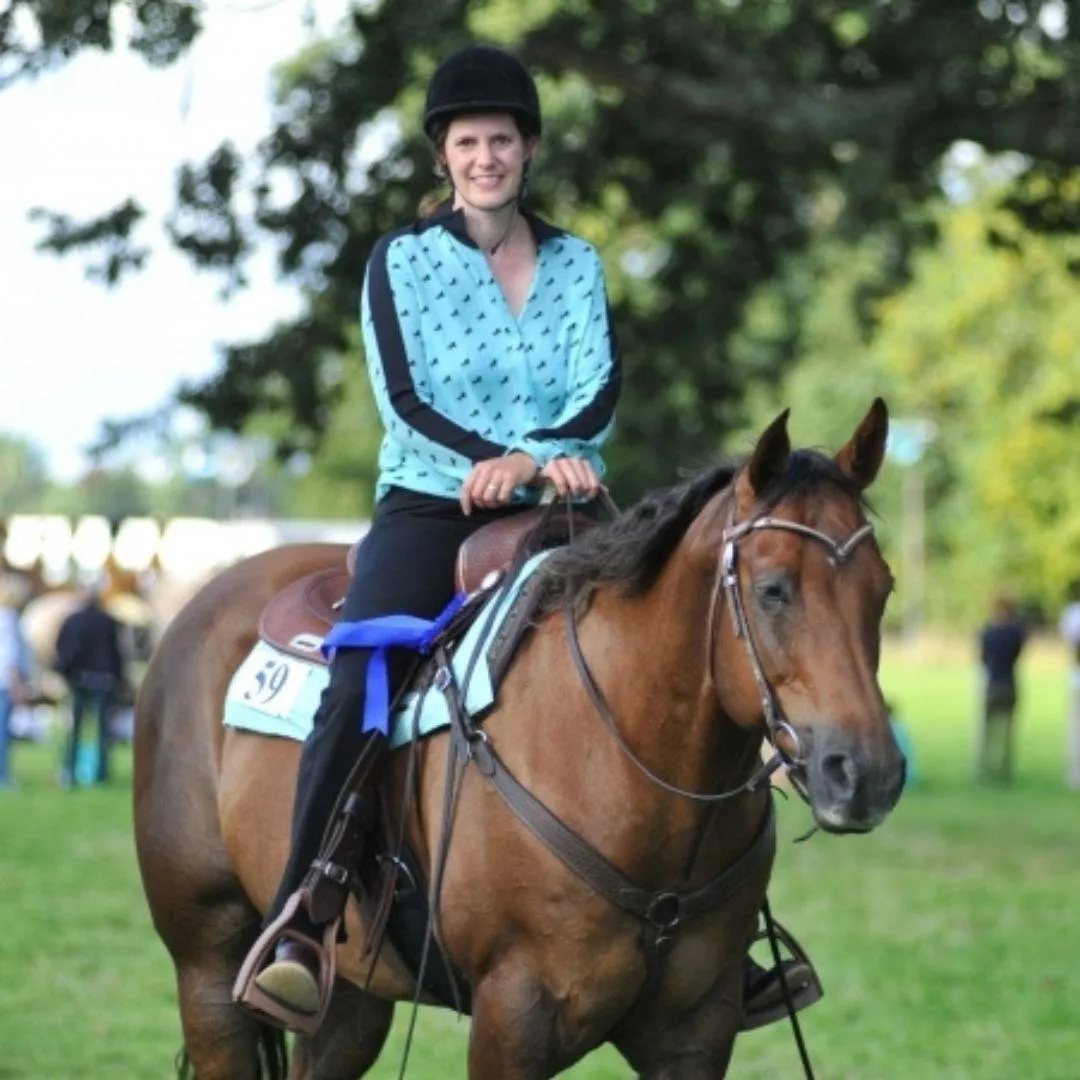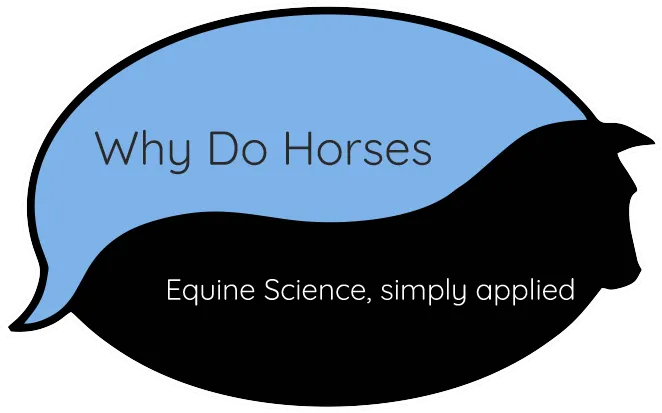Love Reading?
Articles
Find our blog posts and media articles all in one place!

Time Well Spent: Building Quality Time With Horses
Time Well Spent: Building Quality Time With Horses
Many people know that investing time in a relationship reaps countless rewards, but what kind of activities build relationships between horses and their caretakers? What does research say about the horse-human relationship and how can science be used to maximise that bond?

Using Reinforcement to Enhance Relationships
Positive reinforcement (i.e. using a reward to make a desired behaviour more likely to occur in future) is most commonly seen in practice as clicker training. Research has demonstrated that, during positive reinforcement-based training, horses can learn more quickly, experience less stress and can be more keen to commence the session. Additionally, horses have also been observed to approach a handler more readily during and after training but how does this affect the horse-human relationship in the long-term and does this effect extend outside of the initial training context?
In consideration of this, researchers Sankey and colleagues, from the University of Rennes, France, investigated how human-equine interactions influenced the horse's long-term memory of humans. The team studied 23 yearlings in 2 groups, training them to accept a number of common practices such as having boots on or being sprayed. They used food rewards for one group; the other group receiving no rewards during training. The researchers found that the food-rewarded youngsters demonstrated increased contact and interest in humans, not just shortly after training, but also several months later following a period of non-contact with humans. Interestingly, this positive attitude towards humans was also extended towards previously unknown persons.
Whilst food is commonly used as a reinforcer due to its ease of use, it isn't the only type of reinforcement available.
Dr Paul McGreevy, Professor of Animal Behaviour and Welfare at University of Sydney, noted that:
"Primary reinforcers are any resources that animals have evolved to seek. If the animal's motivation is correctly predicted, food, water, physical contact, sex, liberty, sanctuary and companionship can all be used as primary reinforcers."
Although the restriction of access to certain resources, such as water, during training and handling might give rise to welfare and ethical concerns, it is interesting to note the range of reinforcers extends beyond food.
Demonstrating the effect of human-to-horse physical contact, Normando and colleagues, of Ghent University, Belgium, examined how grooming particular sites affected the horse's heart rate. Researchers studied the effect of grooming at the base of the neck, withers, shoulder and hip. Whilst grooming each site was found to reduce the horse's heart rate, grooming at the withers (a common site for allo-grooming) reduced it most significantly, suggesting that the horses found this to be the most stress-reducing or pleasure-inducing site of those studied.
Caretakers and riders can apply this further in handling and training by using a withers-scratch as a reward, in place of a pat on the neck.
As well as incentive, type of handling activity can also influence the horse-human relationship. A study carried out by Fureix and colleagues examined how particular handling activities influenced the horse's emotional reactivity and the horse-human relationship overall. The team of researchers, from the Animal Cognition Research Centre in France, compared the use of Traditional-type and Natural Horsemanship-type handling activities. Traditional-type exercises included human-orientated tasks such as brushing, lifting feet and lunging whilst the Natural Horsemanship-type activities included equine-orientated tasks like desensitisation, yielding to body pressure and free-lunging. The research group found that whilst emotional reactivity was reduced with both handling types, horses in the NH group were quicker to spontaneously approach a motionless person. The team also highlighted that although the welfare of the NH handled horses was not necessarily higher than the TH group, the NH horses showed less tendency towards negative states, such as panic.
Horse-Human Relationship in Housing and Management
Management and housing not only has an effect on equine stress but also in the horse's relationship with humans. Valenchon and colleagues compared the effect of standard environment versus the effect of an enriched environment in 19 Welsh yearlings over 5 weeks. In the standard housing system, horses were in individual boxes with shavings beds, fed concentrated pellets and turned out in individual pens. In the enriched environment, yearlings had straw beds in individual stables but were turned out as a group at night. Horses were also offered social contact, given varied food throughout the day, housed in larger stables and provided with sensory stimulation. Researchers found that youngsters in the enrichement program were less fearful and closer to humans, displaying less defensive behaviour during handling.
The horse-human relationship is ever-developing. It can be influenced by a number of factors including management, training and handling technique. Equine caretakers can use positive interactions to enhance the horse-human bond and allow the horse to develop lasting positive memories of humans.

Blog Posts Straight to Your Inbox!
What do clients say?

Amy D

We had an intro session on clicker training with Louise, it was fabulous, very informative. After reading up about clicker training and getting a bit confused with all the different approaches, Louise made it very clear and explained it all thoroughly.

Eiddwen S

I contacted Why Do Horses for help with issues I was having travelling my horse. During our sessions I found myself wanting to learn more about equine behaviour and body language and I have realised I was missing a lot of knowledge. Why Do Horses have changed my entire outlook on horse training and behaviour, this is something for which I will be forever grateful!


